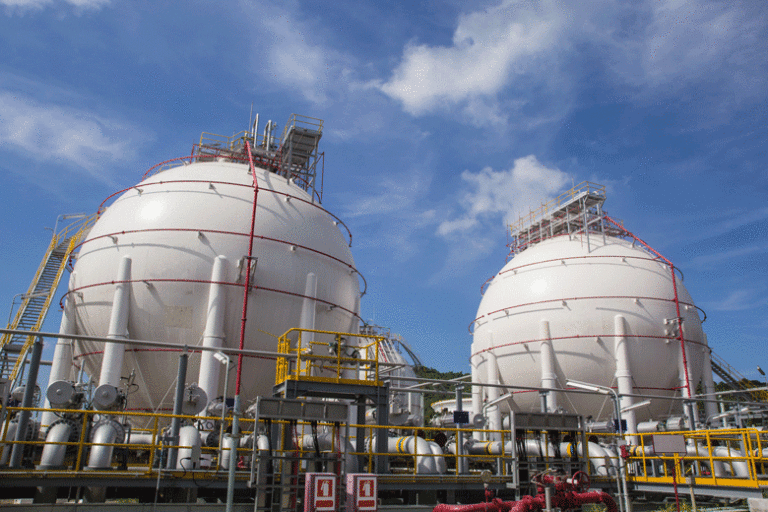Egypt’s petrochemical projects market triples in value

Surge in activity has come amid increased gas production
Egypt’s petrochemical projects market has more than doubled in less than four years, with the value of active projects in the sector increasing from $12.4bn on 8 October 2014 to $30.5bn on 18 August 2019, according to data recorded by MEED Projects.
This figure makes Egypt’s petrochemical projects market the third largest in the Middle East and North Africa after Saudi Arabia and Iran, at $41.6bn and $40.6bn, respectively.
Among the active projects in Egypt, 40 per cent, or $12.32bn-worth, are in execution, with the remaining 60 per cent, or $18.13bn, at various stages of pre-execution.
 The surge in activity in Egypt’s chemicals sector has come about during a period of increasing natural gas production.
The surge in activity in Egypt’s chemicals sector has come about during a period of increasing natural gas production.
Production increased from 3.9 billion cubic feet a day (cf/d) in 2016 to 5.7 billion cf/d in 2018, according to data collected by UK-based oil major BP.
Production is expected to continue to rise in Egypt as more wells are brought online from several major gas reservoirs discovered over recent years.
Italy’s Eni announced its record-breaking Zohr discovery in August 2015 and says it is targeting peak production of 2.7 billion cf/d from the field this year.
Increasing production of natural gas within Egypt will give chemical projects a reliable flow of reasonably cheap feedstock, improving the environment for investment in new projects.
Driving growth
Egypt also benefits from fast-growing domestic consumption for petrochemical outputs, and this should help to drive growth in the country’s chemicals sector.
“We do see robust growth for Egypt. There is a relatively large population with increasing consumption of plastics in both Egypt and neighbouring countries,” said Patrick Kirby, principal analyst at Wood Mackenzie.
“It is more linked to consumption growth though than major supply growth via increased petrochemical production. Egypt has made some expansions of its petrochemical industry over the last decade or so, but looking to the next decade, Wood Mackenzie expects overall modest growth in new projects in the country.”
Investors ambivalent
Finding willing investors is likely to remain challenging for many of the more ambitious petrochemicals projects in Egypt.
Political uncertainty following the aftermath of the Arab Spring in 2011 is still a concern for investors, and competition from the US and Asia means investors may prefer to put their money into facilities based elsewhere.
Earlier this month, Carbon Holdings said its $10.9bn Tahrir petrochemicals complex project is expected to see financial close this year.
If the project goes ahead, it will be Egypt’s largest-ever petrochemicals project, including the construction of a 1.5 million tonne-a-year (t/y) ethylene cracker and a polyethylene facility with a capacity of about 1.4 million t/y.
Other major products will include propylene, polypropylene, hexene, butadiene, benzene and styrene. When completed, it is expected to be the largest naphtha cracker plant in the world.
In a statement released last year, Egypt’s cabinet said the project would cover an area of 5 million square metres and provide 48,000 jobs.
Tahrir risk
At the same time, analysts have continued to voice concerns that Carbon Holdings could struggle to find investors that are ready to commit to such an ambitious project.
“We are monitoring this project very closely, but we do not consider it a ‘firm/likely’ project investment in our petrochemical project classifications,” said Kirby.
“In other words, we do not see the project as likely to come into the market in the next six to seven years. It has been a project that has been discussed for several years and not reached financial close.
“From the concept plans, it would be a very large naphtha cracker project investment and have the ability to support several downstream chemical processing facilities, but does not come without a degree of risk in our view.
“Our assessment is that the project is competing economically against investments in feedstock advantage locations like the US, the Middle East or major market centres like Asia, which have both attracted most of the focus and investment dollars during the coming investment cycle.”
While finding investment for Egypt’s most ambitious petrochemicals projects is likely to remain challenging over coming years, reliable supplies of feedstock and easy access to consumers should ensure that it remains an attractive location for new smaller and medium-sized projects.


